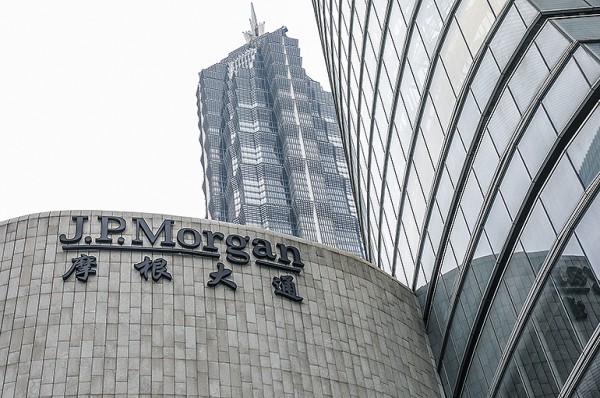J.P. Morgan is overweight Chinese stocks as the country's reopening is on track, while the US investment banking giant is underweight equities overall, according to Marko Kolanovic, its chief global market strategist.

“Our equities broadly are underweight, but within equities we are overweight China and let’s say underweight Europe,” Kolanovic told Yicai Global during a recent summit in Shanghai. “On a relative basis, I like China better now than let’s say Europe or even Nasdaq for that matter.”
“Globally, we don't like equities because we think that recession will probably happen in the second half of this year or maybe early next year,” Kolanovic said. “We’re hoping that this recession doesn’t turn out to be very long. They’re relatively short historically.”
China’s reopening is on course, but some expectations may become too high, so the Chinese market may have some weakness such as in the past two weeks, Kolanovic noted.
“But overall, we still think valuations are more attractive than US or Europe,” he said. “We think that the economic picture ultimately is going to be better because there is not as much of an inflation problem as in the US.”
But the current global headwinds are a “hiccup,” Kolanovic said. “The biggest problem for equities globally is the very restrictive monetary policy and very quick increase in interest rates in the US, which was then followed by Europe. That did not happen in China. The core problem is in the West.”
China has its own dynamics and implements stimulus measures in a prudent way, he said. “China is doing pretty well overall.”
China's recovery is led by a pick-up in consumption, but demand remains weak. When asked about how China can unlock consumption, Steven Barnett, senior resident representative in China of the International Monetary Fund, told Yicai Global that there is still room for fiscal policy to support household consumption.
China can take steps, for example, to reduce what economists call ‘precautionary savings’ by strengthening the social protection system and putting in place catastrophic health insurance. “That could help reduce the savings rate,” Barnett said.
“It is true that in China what we saw in the pandemic is household savings went up a quite a bit,” he said. “Much of the world during the pandemic saw a rise in household savings. As countries came out of the pandemic we saw household savings kind of gradually normalize, which is the pattern I think we are seeing in China right now.”
Fiscal policy should be neutral, meaning that the deficit for this year should be roughly the same as last year, but a higher ratio of the deficit should support households rather than investment, Barnett said. Meanwhile, monetary policy has more room for easing, preferably by using interest rates, as inflation is low and the economy is running below potential, he added.
Media Contact
Company Name: Yicai Media Group
Contact Person: Zhu Liming
Email: Send Email
Country: China
Website: https://www.yicaiglobal.com/





